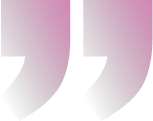Executive Summary
The corporate boardroom is experiencing a fundamental shift. As companies navigate AI-driven transformation, multigenerational workforces, and unprecedented talent challenges, the demand for directors with deep human capital expertise has never been greater. Yet Chief Human Resources Officers (CHROs) remain dramatically underrepresented in boardrooms worldwide.
This research reveals a striking paradox: while independent directors with human capital qualifications have more than doubled in the S&P 500 (from 16.2% in 2018 to 38.3% in 2024)1, actual CHRO appointments to boards remain rare. Our findings show that the difference between recognition and representation comes down to how CHROs position themselves—not as functional experts, but as enterprise leaders who happen to possess deep people expertise.
The Technology Catalyst: Why HR's Evolution Changes Everything
The convergence of artificial intelligence, machine learning, and advanced analytics is fundamentally redefining human resources—and with it, the CHRO’s path to the boardroom.
“When artificial intelligence arrives, the transactional side of business
will be automated. This increases the need for intelligence, experience,
and sensitivity—especially at the board level, where strategic decisions
require human judgment.”
Stefano Bridelli, Co-Founder and Chairman at Bain & Company South America

This transformation creates both opportunity and imperative. As routine HR processes become automated, CHROs must navigate questions that didn’t exist a decade ago: How do we reskill workers whose roles are disappearing? What ethical frameworks should guide AI-powered hiring? How do we maintain culture in hybrid work environments?
Modern CHROs who successfully navigate this technological transformation don’t just manage people—they architect the future of work itself. This positions them uniquely for board roles, where anticipating disruption and managing transformation are core responsibilities.
The Modern CHRO: A Multifaceted Strategic Leader
Today’s CHROs operate far beyond traditional HR boundaries. They are simultaneously:

Strategic Partners: Contributing to M&A decisions and business transformation

Cultural Architects: Shaping organizational identity in times of change

Risk Managers: Navigating compliance, reputation, and talent risks

Innovation Leaders: Driving digital transformation of work itself

Stakeholder Communicators: Engaging with investors, regulators, and communities
This expansion creates clear advantages in two critical board competencies: compensation strategy and succession planning.
“Knowing how to assess and influence executive pay—and doing it well—is a key board-level skill. Everyone thinks they know HR and compensation, but it’s much more complex than it looks.”
A seasoned board leader and chair of multiple compensation committees and former senior executive at an IBEX 35 bank

The complexity of modern executive compensation, from ESG-linked incentives to performance equity structures, requires expertise that many board members lack. Similarly, succession planning has evolved from simple replacement charts to complex talent pipeline management that can make or break companies.
Breaking Through: The Journey from Function to Enterprise
The most significant finding from our research is unequivocal: successful CHRO-to-board transitions require a fundamental mindset shift from functional expert to enterprise leader.
“Once you sit around that table, you’re expected to contribute on every aspect of the business. Any board member should be able to speak intelligently about strategy, operations, finance—all of it. That’s what makes you valuable.”
Silvana Battaglia, CHRO at Cencora and Board Member at Agilon Health.

This transition demands:

Financial Fluency: Moving beyond HR metrics to understand how people decisions impact enterprise value, cash flow, and shareholder returns.

Strategic Perspective: Contributing to discussions about market entry, competitive positioning, and digital transformation—not just the people implications.

Risk Management: Understanding enterprise risk beyond compliance, including cyber security, supply chain, and reputational threats.

Stakeholder Communication: Engaging effectively with investors, analysts, and proxy advisors who increasingly focus on human capital metrics.
Regional Realities: A Global Perspective
The path from CHRO to board member varies significantly across regions, shaped by different regulatory frameworks and business cultures.
The path from CHRO to board member varies dramatically across regions. European markets lead with prescriptive regulatory frameworks—Spain’s CNMV and the European Banking Authority explicitly require People & Talent competency. The U.S. shows impressive statistical growth in human capital expertise on boards, though actual CHRO appointments remain rare.
Latin America presents unique opportunities as family-controlled businesses professionalize their governance.
“The awareness about the relevance of human capital is unequivocal, but people originating from the human resources area I still see it very rare.”
Pedro Parente, an experienced Brazilian board chairman

[For detailed regional analysis including regulatory frameworks, market-specific opportunities, and insights from leaders across all three regions, see the full whitepaper.]
The Path Forward: Essential Strategies
For CHROs aspiring to board service, our research reveals critical success factors:
- Demonstrate Business Impact: Link people initiatives directly to enterprise value
- Build Cross-Functional Credibility: Seek P&L responsibility and enterprise-wide initiative
- Master Board Communication: Distill complex issues into strategic insights
- Position at Key Intersections: Become the CHRO who understands AI, ESG, and transformation
[The full whitepaper provides detailed frameworks for each strategy, including specific development paths, networking approaches, and real-world examples from successful CHRO-to-board transitions.]
Conclusion: The Boardroom Imperative
The research leads to an inescapable conclusion: in an era where competitive advantage increasingly flows from human capital, excluding deep people expertise from governance is a strategic blind spot boards can no longer afford.
“The companies that will win in the next decade are those whose boards include leaders who deeply understand how to build, transform, and optimize human capital in a digital age. That’s precisely the expertise CHROs bring, but they must position it in terms of enterprise value creation, not just functional excellence.”
Noam Eisenberg, Senior Partner and Global Business Leader at Kingsley Gate

For CHROs willing to make the journey from functional expert to enterprise leader, the boardroom door is opening. The question isn’t whether CHROs belong in boardrooms—it’s how quickly both CHROs and boards will recognize that human capital mastery deserves a permanent seat at the governance table.
The CHROs who embrace this transition are not just board-eligible—they are board-essential. In a world where talent determines competitive advantage, their expertise isn’t optional; it’s imperative.
The Complete Research
This article presents the essential findings from our comprehensive whitepaper, “Boardroom-Bound: The CHRO’s Journey from People Expert to Enterprise Leader.”
What you’ll find in the full paper:
Detailed Regional Analysis:While this article provides an overview, the complete study offers in-depth examination of each region’s regulatory frameworks, cultural nuances, and specific opportunities—including insights from Eduardo Antunovic on European markets, Mike Bergen on U.S. dynamics, and extended perspectives from Latin American leaders.
The Modern CHRO Deep Dive: Beyond the summary here, explore comprehensive analysis of how compensation committees are evolving, why succession planning has become a board-level strategic imperative, and specific examples of CHROs leveraging these competencies for board appointments.
Complete Strategy Frameworks: This article outlines key strategies, but the full paper provides actionable frameworks for each, including how to cultivate board-ready networks, specific cross-functional experiences that matter most, and communication techniques that resonate with directors.
Technology Transformation Analysis: Extended exploration of how AI and automation are reshaping HR, with additional perspectives from Stefano Bridelli and other leaders on positioning yourself at the technology-human capital intersection.

